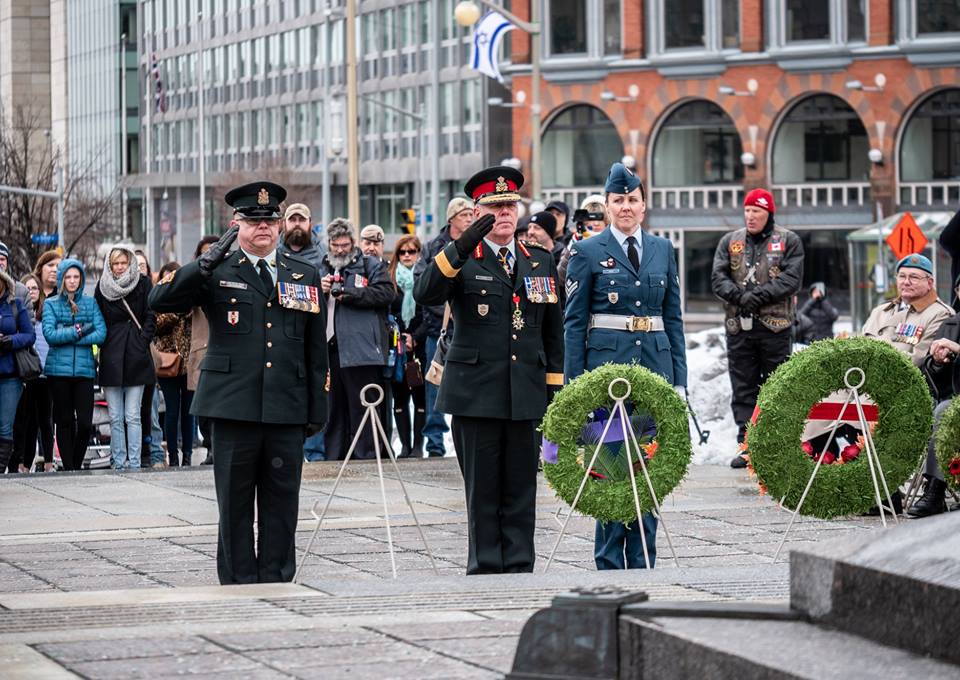
OTTAWA — When the Sept. 11 terror attacks hit the World Trade Centre towers in 2001, Anita Cenerini says her son, Thomas Welsh, knew right away he would likely be shipped off to war.
He had joined the Canadian Forces just one month prior, so his mother tried to reassure him.
“I was afraid for him and I said, ‘You don’t have to go. You just joined. You can back out,”’ she recalled.
“He came up to me and he put his arms around me and he said, ‘Mom, they’re going to need me now more than ever.”’
Welsh was trained and deployed as part of Operation Athena in August 2003, where he served as a C9 gunner. Less than three months after he returned to Canada, he took his own life.
His death on May 8, 2004, was the first death by suicide of a Canadian soldier after serving in the Afghan war.
Cenerini was named the 2018 National Silver Cross Mother and was in Ottawa on Sunday for a special ceremony at the National War Memorial marking the fifth anniversary of the end of Canada’s mission in Afghanistan.
Her voice was quiet as she tried to talk about her son without breaking into tears. Her eyes reflected the heavy heart of a newly grieving mother, despite the decade and a half that have passed since her son died.
Cenerini fought for years to have Welsh’s death recognized as being caused by his military service.
On Sunday, the invisible wounds of war were openly acknowledged by government and military officials who shared solemn words of remembrance.
Canada’s Chief of the Defence Staff, General Jonathan Vance, said the country is still trying to learn how best to care for those who were wounded — physically and emotionally — during the war in Afghanistan.
“We cannot ever forget that warfare takes its toll and always will,” he said.
“This war took a physical toll on the dead and wounded and took a mental toll on many people left behind that may not appear wounded, but they are.”
Stephane Lauzon, parliamentary secretary to Veterans Affairs Minister Lawrence MacAulay, also acknowledged the toll the conflict continues to have for many.
A total of 158 Canadian Armed Forces and seven Canadian civilians were killed in the conflict and more than 40,000 Canadians in uniform served in Afghanistan from 2001 to 2014.
“They cannot and will not be forgotten, nor can the thousands who left with physical and psychological injuries. For those who returned home with injury and for those who continue to struggle with those injuries, we will continue to improve our support and services for you,” Lauzon said.
“Whether the injury be physical or mental, we will be there for you.”
Cenerini said she feels humbled by the sacrifices of so many families who lost loved ones and is grateful to have their lives honoured at the National War Memorial — a physical place where she says remembering them is profound.
Her son’s courage brings her strength, she said, even when it comes with deep sadness.
“That’s the most important story, that when Thomas could have said no, he didn’t. He said yes. And I think that’s all that really matters,” she said.